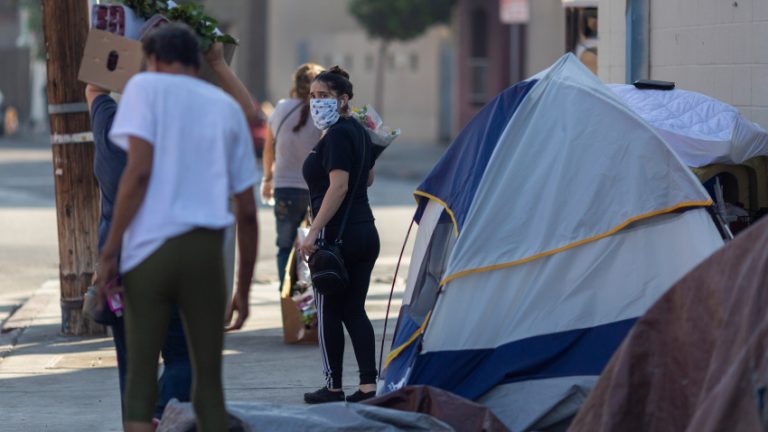Published on December 4, 2020

A King County initiative that moved people out of homeless shelters and into hotel rooms earlier this year helped slow the transmission of the coronavirus SARS-CoV2, according to the final report from a study of the intervention.
The study is co-authored by Gregg Colburn and Rachel Fyall, faculty co-leads of Urban@UW’s Homelessness Research Initiative, and the initial results were shared in September. Read an excerpt of the final report below.
In April 2020, King County, Washington took an unprecedented step to respond to the COVID19 pandemic. King County Executive Dow Constantine and Public Health Officer Dr. Jeffrey Duchin acted to move more than 700 people out of high-density congregate emergency shelters and into hotel rooms. Since then, over 400 more individuals have also been served. This intervention was part of a regional effort to de-intensify the shelter system to limit the transmission of the virus and protect vulnerable individuals experiencing homelessness. Beyond the move to hotels, the County, the City of Seattle, and provider agencies took additional de-intensification measures, including opening new congregate shelters and providing more space to accommodate social distancing. In all locations, providers were supported to meet Public Health guidance for social distancing as well as infection prevention and control.
A team of researchers from the University of Washington and the King County Department of Community and Human Services was engaged to study the impacts of this programmatic intervention. This study used a mixed methods approach to understand the effects and outcomes on individuals who were moved to non-congregate hotel settings, and the research team worked closely with provider agencies to complete the study. The findings establish an evidence base to help inform future strategic responses to homelessness and public health crises in King County as well as to contribute to the broader policy conversations on these topics. Because a return to high-density congregate emergency shelters may not be an option in the near-to-medium term due to public health concerns, new approaches may be necessary to safely house and support people experiencing homelessness in our region.
Continue reading at the Regional Homeless Authority website.
Originally written by Rachel Fyall of the Evans School of Public Policy & Governance and Gregg Colburn of the Runstad Department of Real Estate.